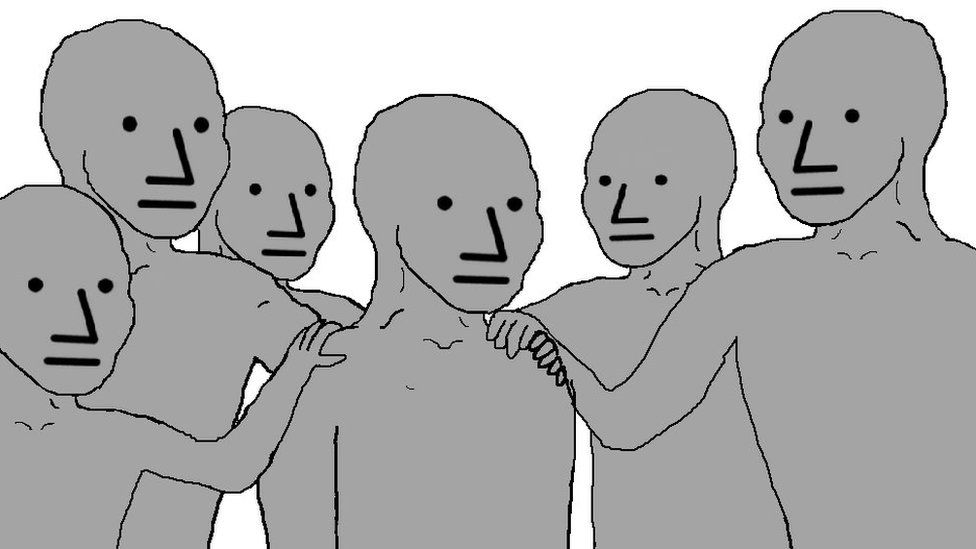Why has Twitter banned 1500 accounts and what are NPCs?
- Published

The Trump-supporting right has a new favourite meme and it's being shared far and wide to troll their political opponents.
Twitter has suspended hundreds of accounts after users on pro-Trump Reddit forum r/The_Donald coordinated efforts to set up 'non-player character' profiles mocking liberals on the social networking site.
The trolling campaign was born out of the characterisation of liberals as automatons incapable of independent thought on areas of Reddit and 4chan.
In 24 hours there were more than 30,000 uses of the term NPC on Twitter, and Facebook pages dedicated to the trend have amassed tens of thousands of followers.
So what is an NPC?
It's a video game reference.
Non-player characters (NPCs) are controlled by the game's artificial intelligence rather than the player. As a result, they're limited to certain scripted responses and actions.
In a 2016 post on 4chan, one anonymous user referred to people "who autonomously follow groupthinks and social trends in order to appear convincingly human" as NPCs.
"If you get in a discussion with them it's always the same buzzwords and hackneyed arguments," the poster wrote.
"It's like in a [video game] when you accidentally talk to somebody twice and they give you the exact lines word for word once more."
In recent months the term has been adopted enthusiastically by right-wing social media users. It's frequently used interchangeably with social justice warrior or SJW as a catch-all term for their political opponents.
You might also like:
Who's the grey guy?
Wojak, aka Feels guy, is a simply-drawn character already used widely online.
The character "is often used as a reaction image to represent feelings such as melancholy, regret or loneliness," according to Know Your Meme.
The modification of Wojak's face to replace his emotive expression with a crudely-drawn, generic blank expression has become one of the most popular visual representations of the meme.
As well as Wojak, images of prominent liberals were also modified.
Colin Kaepernick, the American football player whose refusal to stand during the playing of the national anthem to protest against police violence on African-Americans drew heavy criticism from President Trump, is among them.
Other individuals whose images were doctored include Professor Christine Blasey Ford, who accused subsequently-confirmed Supreme Court judge Brett Kavanaugh of sexual assault, an allegation he strongly refuted.
How has it spread?
As the term became more widely-used, a group of Reddit users on one of the most vociferously pro-Trump corners of the internet hatched a plan.
Members of subreddit r/The_Donald, which has more than 667,000 subscribers, created scores of Twitter profiles featuring grey NPC faces.
When some of the accounts started tweeting false information regarding the upcoming mid-term elections, Twitter took action to suspend a number of the accounts.
Who cares?
Well Twitter, clearly, since it has suspended profiles set up to spread them. And many conservatives are upset by that action.
Plus what looks like a row over a meme sits in the broader context of ongoing culture wars. Trump supporters complain liberals denigrate them all as fascists or Russian bots. Liberals are angered by their mass characterisation as snowflakes or NPCs.
The Trump-supporting right has proven itself adept at spreading memes online.
Researchers from University College London who analysed a huge database of memes discovered the 4chan message board /pol/ and subreddit r/The_Donald were particularly effective.
"We find that /pol/ substantially influences the meme ecosystem by posting a large number of memes, while r/The_Donald is the most efficient community in pushing memes to both fringe and mainstream web communities," the study's authors wrote.
- Published26 August 2016
- Published17 April 2018
- Published16 April 2018